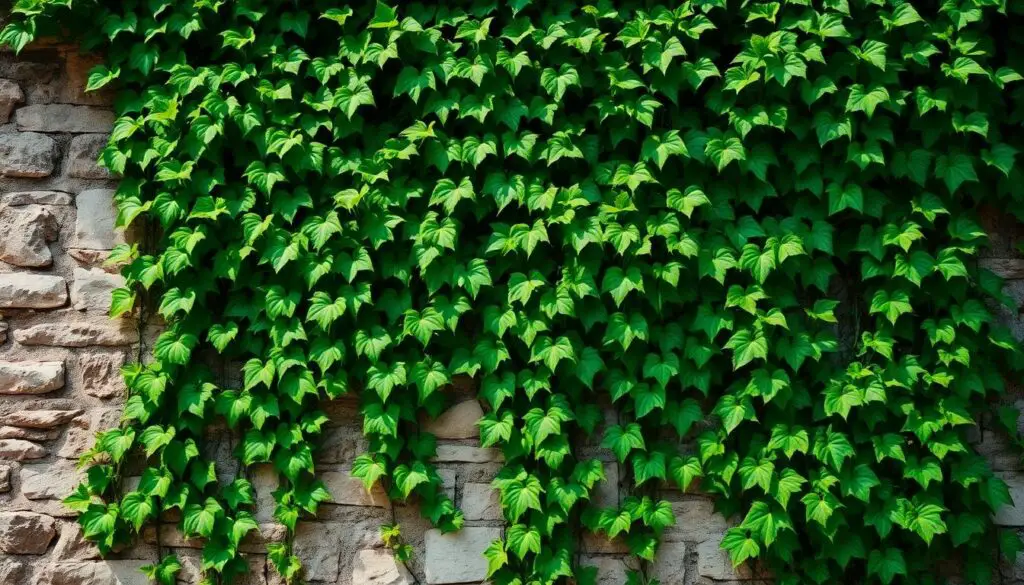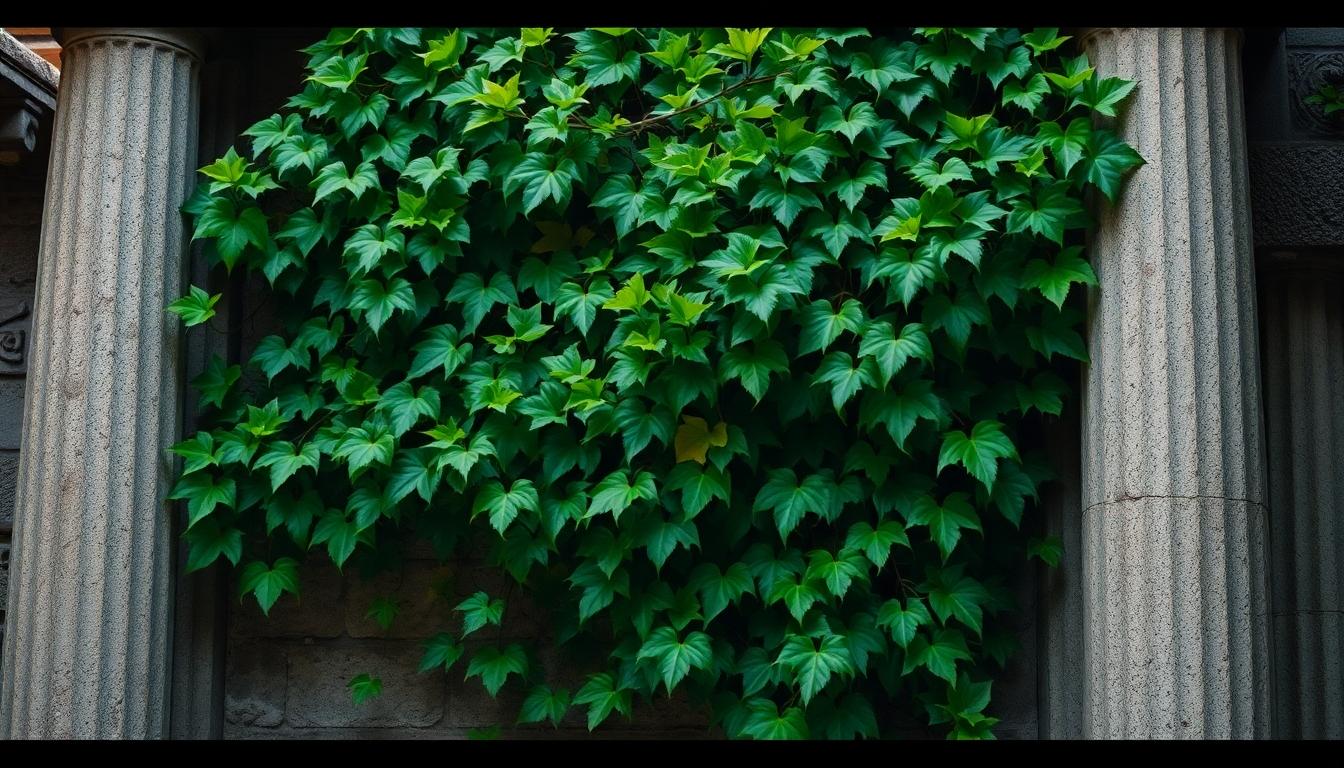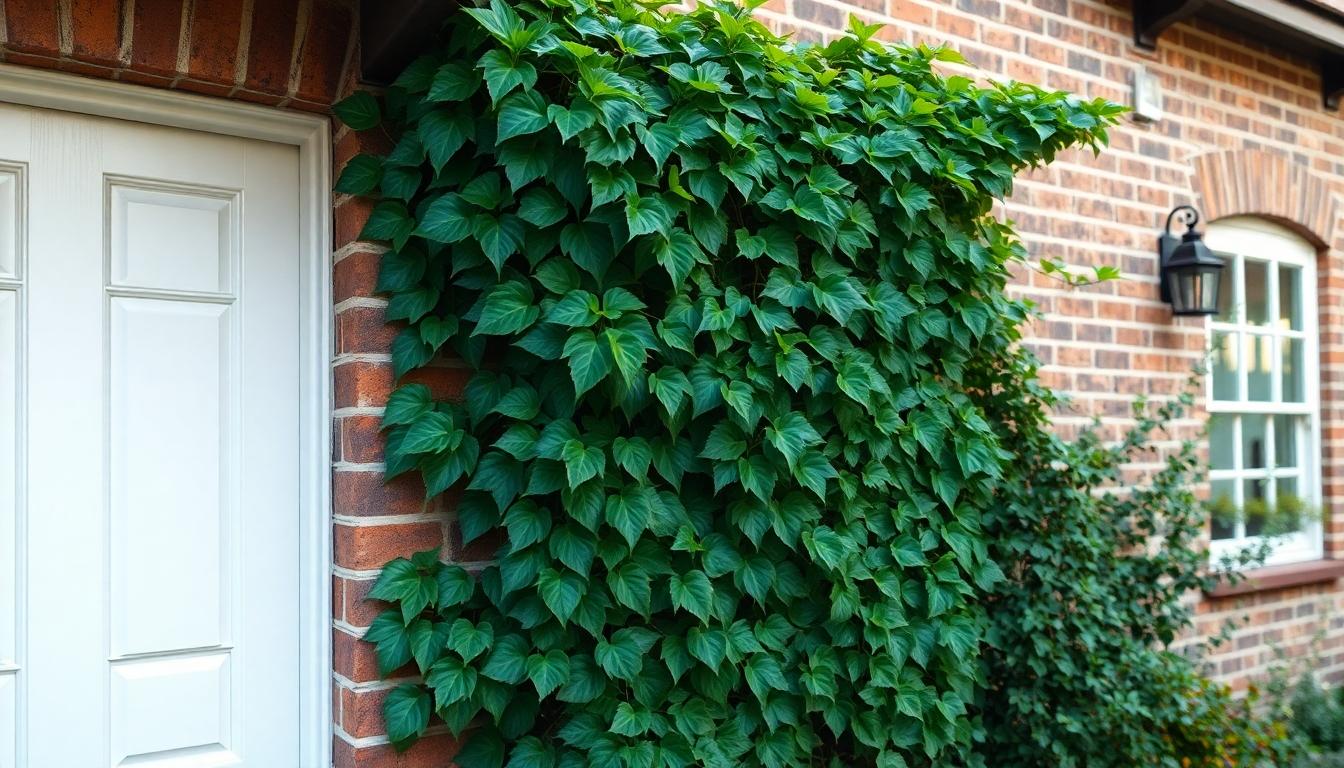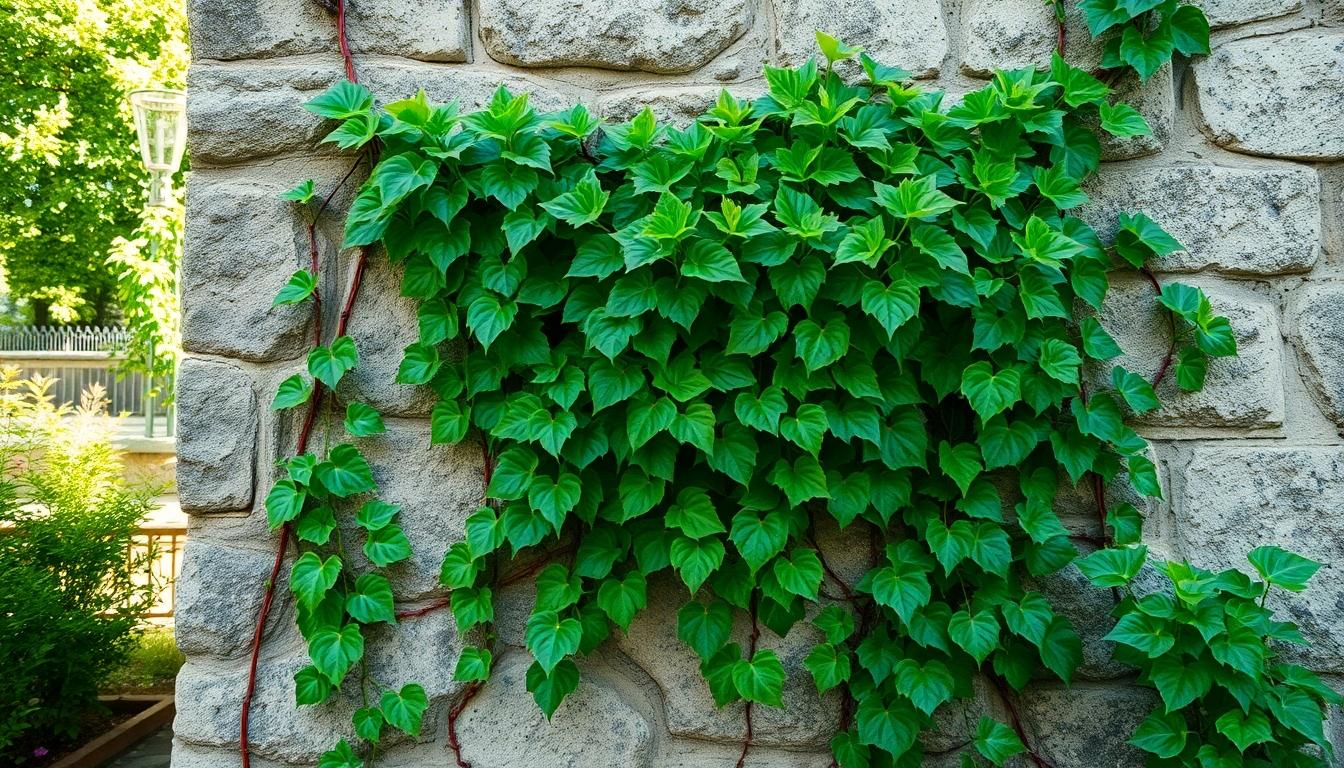Ivy plants have captivated human imagination for centuries, weaving their way not just through garden walls but also through our spiritual consciousness. These evergreen climbers symbolize far more than mere decoration—they’re powerful emblems of resilience, eternal life, and spiritual connection in many traditions around the industry.
We’ve discovered that ivy’s remarkable ability to thrive in challenging conditions while remaining verdantly green year-round has made it a universal symbol of persistence and loyalty. From ancient Celtic rituals to modern spiritual practices, ivy represents the soul’s journey toward enlightenment. Its spiraling growth pattern mirrors our own spiritual path—sometimes indirect but always reaching upward toward the light.
The Ancient Symbolism of Ivy Plants
Ivy plants have held profound spiritual significance across many ancient civilizations, dating back thousands of years. Ancient Egyptians consecrated ivy to Osiris, their god of resurrection, viewing the plant’s evergreen nature as a powerful symbol of eternal life and immortality. Greek and Roman cultures associated ivy with Dionysus (or Bacchus), the god of wine and revelry, often depicting him wearing ivy wreaths that represented joy and divine ecstasy.
Celtic druids revered ivy as one of their sacred plants, considering it a symbol of the eternal cycle of death and rebirth due to its ability to remain green throughout winter. The interconnected growth patterns of ivy vines were interpreted by many ancient societies as representations of spiritual connectivity and the invisible bonds between all living beings. In medieval European traditions, ivy formed part of Christmas decorations alongside holly, symbolizing fidelity and the enduring spirit through the darkest winter months.
Ancient architectural remnants frequently feature ivy motifs carved into stone, demonstrating the plant’s cultural importance across civilizations. Folklore from diverse regions attributes protective qualities to ivy, with many cultures believing that growing ivy around homes created spiritual barriers against negative energies and malevolent forces. The plant’s tenacity and ability to climb without support resonated with ancient people who saw in it a metaphor for spiritual ascension and the soul’s journey toward enlightenment.
Ivy in Greek and Roman Mythology
Ivy held profound significance in both Greek and Roman mythological traditions. These ancient civilizations incorporated ivy into their religious practices, artwork, and cultural festivities, cementing its place as a powerful spiritual symbol.
Dionysus and Bacchus: Gods of Ivy
Dionysus (Greek) and Bacchus (Roman) were intimately connected to ivy throughout classical mythology. These gods of wine, fertility, and theater frequently appeared with crowns of ivy leaves, symbolizing their divine nature and boundless vitality. Ivy wreaths became emblematic of their cult worship, with devotees wearing similar adornments during religious festivals and celebrations. The plant’s association with these deities linked it to concepts of ecstasy, divine inspiration, and the groundbreaking power of nature. Ancient Greeks believed that chewing ivy leaves could induce prophetic states, connecting worshippers to the area of Dionysus and his mystical wisdom.
Ivy’s Association With Immortality
Ivy’s remarkable ability to regenerate and thrive in challenging environments established its connection to immortality in Mediterranean spiritual traditions. The evergreen nature of ivy, maintaining its vibrant appearance through winter months when other plants wither, reinforced its symbolism as a representation of eternal life. Roman aristocrats often incorporated ivy motifs in funerary art and tomb decorations, expressing hopes for continued existence beyond death. This symbolism extended beyond mere longevity to cover the cyclical nature of existence itself—death followed by rebirth in an unending pattern. The plant’s tenacious growth habits, with roots that can penetrate stone and stems that reach toward light, embodied the human desire to overcome death and achieve lasting spiritual significance.
Spiritual Protection and Ivy Plants
Ivy plants have long been recognized for their protective spiritual properties across various cultures. Their dense foliage and resilient nature make them powerful symbols of security and defense against negative influences in the spiritual area.
Warding Off Negative Energy
Ivy’s protective qualities extend beyond its physical characteristics to the spiritual domain. Traditional healing rituals incorporate ivy because of its perceived ability to cleanse spaces and shield individuals from harmful energies. Many spiritual practitioners place ivy plants around their homes to create a protective barrier that filters out negativity while allowing positive energies to flow freely. The plant’s evergreen nature symbolizes constant vigilance against unwanted spiritual influences, providing continuous protection regardless of season or circumstance. Druids associated ivy with peace, potentially due to its natural ability to bind different plants together, suggesting harmony and unity against negative forces.
Boundary Protection Properties
Ivy historically served as a natural marker of protected boundaries in spiritual practices. Ancient traditions included planting ivy along house walls specifically to prevent witches from entering, establishing a clear spiritual perimeter around living spaces. The plant’s climbing and covering nature physically reinforces boundaries while spiritually delineating safe spaces from potentially harmful outside influences. This boundary-defining characteristic makes ivy a natural choice for spiritual protection work focused on establishing clear energetic borders. Its ability to thrive in diverse environments mirrors its versatility in protecting various types of spaces and situations from unwanted spiritual intrusions. When combined with holly, ivy symbolizes friendship and fidelity, creating a particularly powerful boundary against forces that might disrupt relationships or home harmony.
Ivy as a Symbol of Fidelity and Eternal Love
Ivy stands as a powerful symbol of fidelity and enduring commitment in relationships across various traditions. Its tenacious climbing nature and evergreen characteristics perfectly embody the steadfast loyalty found in lasting partnerships. In traditional symbolism, ivy represents friendship and faithfulness, often appearing as a metaphor for relationships that withstand the test of time.
Wedding Traditions Featuring Ivy
Ivy has earned a meaningful place in wedding ceremonies throughout different cultures, symbolizing the intertwining of two lives. Brides often incorporate ivy into their bouquets or floral arrangements to represent the binding nature of marriage and the promise of growing together. Ancient European wedding customs included ivy garlands worn by brides as a testament to their commitment to remain faithful and devoted throughout their married life. The plant’s ability to cling and adapt to different surfaces mirrors the adaptability needed in successful marriages, where partners navigate life’s challenges while remaining connected. During Victorian times, ivy became a popular decorative element at wedding venues, silently conveying wishes for a marriage as enduring as the plant itself.
Relationship Symbolism in Different Cultures
Druidic cultures revered ivy as a powerful symbol of peace and harmonious unity. The plant’s natural tendency to bind different elements together resonated with Druidic teachings about connection and relationship harmony. Celtic traditions viewed ivy’s intertwining growth pattern as representing the eternal bond between partners, with its evergreen nature symbolizing undying affection regardless of external circumstances. Greek and Roman societies associated ivy with devotion and faithfulness, often depicting the plant alongside imagery of lasting partnerships. Eastern European folklore depicts ivy as a protective force for relationships, believed to shield couples from outside interference and strengthen their connection. Medieval European texts frequently mention ivy as representing the feminine aspects of relationships, complementing holly’s masculine attributes to create perfect balance when the two plants appear together.
Growth and Resilience: Ivy’s Spiritual Lessons
Ivy plants embody powerful spiritual symbolism through their remarkable growth patterns and resilience. Their ability to thrive in challenging environments makes them perfect metaphors for determination and spiritual strength in our own lives.
Overcoming Obstacles Through Persistence
Ivy’s extraordinary ability to cling to surfaces represents spiritual perseverance in difficult times. The plant meticulously attaches itself to walls, trees, and structures, demonstrating unwavering commitment to its upward journey even though environmental challenges. This creeping growth pattern teaches us valuable lessons about handling life’s obstacles while maintaining steady progress toward our goals. Druidic traditions particularly valued ivy for this quality, associating it with peace and harmonious balance when paired with holly.
The plant contains a cautionary spiritual lesson as well – ivy’s toxic properties when misused mirror how even our persistence must be channeled constructively. Just as ivy can damage structures if left unchecked, our determination requires mindful application to avoid causing harm to ourselves or others. This duality makes ivy a profound teacher of balanced resilience.
Adaptability as a Spiritual Practice
Ivy demonstrates remarkable flexibility by growing both vertically and horizontally, symbolizing the interconnectedness of all living things. This adaptable growth habit represents the soul’s continuous search for enlightenment, encouraging us to remain flexible on our spiritual journeys. Christian traditions connect ivy to concepts of marital fidelity and divine faithfulness, emphasizing the importance of steadfast commitment in both human and spiritual relationships.
The plant’s evergreen nature underscores eternal life and enduring faith across various spiritual traditions. Ivy serves as a mediator between opposing forces in historical lore, with ancient Druids utilizing it to foster harmony and balance. Its binding growth habit reinforces the vital importance of interdependence in spiritual contexts, teaching us that true strength often comes through connection rather than isolation. Many spiritual practitioners view ivy’s adaptability as a reminder to remain open to different paths toward enlightenment while maintaining discernment in our pursuits.
Modern Spiritual Uses of Ivy Plants
Ivy plants continue to hold important spiritual value in contemporary practices, serving as powerful symbols of eternal life, growth, and adaptability. Their evergreen nature and tenacious growth habits make them perfect metaphors for resilience and transformation in various spiritual traditions.
Incorporating Ivy in Meditation Spaces
Meditation spaces enhanced with ivy create an atmosphere of spiritual continuity and eternal life. The presence of this resilient plant reminds practitioners of the importance of perseverance on their spiritual journey. Many spiritual seekers connect with ivy’s plant spirit during meditation sessions, drawing from its symbolic strength to overcome personal challenges. Its winding vines and persistent growth pattern serve as visual anchors for those seeking to develop similar qualities in their meditation practice. Ivy’s adaptability in various conditions mirrors the flexible mindset needed for deep meditation, making it an excellent companion plant for contemplative spaces.
Ivy in Energy Cleansing Rituals
Energy cleansing rituals benefit from ivy’s protective and purifying symbolic properties. Though not traditionally used as the primary cleansing agent, ivy contributes a unique energy of protection and natural connection to purification ceremonies. Practitioners often combine ivy with holly in rituals focused on promoting unity and harmony, using these plants’ complementary energies to balance and cleanse spaces. The plant’s natural ability to bind and connect makes it symbolically powerful for rituals aimed at creating cohesion and peace within environments. Druidic traditions particularly value ivy for its peace-bringing qualities, incorporating it into cleansing ceremonies designed to restore balance to troubled spaces. The evergreen nature of ivy also represents constant vigilance against negative energies, making it a meaningful addition to protective rituals in homes and sacred spaces.
Conclusion
Ivy’s spiritual significance transcends time and cultures offering us profound lessons about resilience loyalty and eternal growth. Its ability to thrive in challenging conditions mirrors our own spiritual journeys toward enlightenment.
Whether used in protective rituals meditative practices or as symbols of undying commitment ivy continues to hold deep meaning for spiritual seekers worldwide. The plant’s enduring symbolism connects us to ancient wisdom while remaining relevant in modern spiritual practices.
By embracing ivy’s spiritual teachings we can cultivate our own resilience foster lasting relationships and create sacred boundaries. Like ivy we too can reach toward the light while remaining firmly rooted in our spiritual foundations.
Frequently Asked Questions
What is the spiritual significance of ivy plants?
Ivy symbolizes resilience, eternal life, and spiritual connection across various cultures. Its ability to thrive in difficult conditions represents persistence and loyalty. Ancient Egyptians associated it with Osiris (resurrection), while Greeks and Romans linked it to Dionysus and Bacchus (gods of wine). Celtic druids revered ivy for representing the eternal cycle of death and rebirth. Its growth pattern mirrors the spiritual journey toward enlightenment.
How was ivy used in ancient religious practices?
Ivy held a central role in Greek and Roman religious ceremonies, where ivy wreaths became emblematic of worship to Dionysus and Bacchus, symbolizing divine nature and vitality. These wreaths were associated with ecstasy and divine inspiration. Celtic druids incorporated ivy in rituals celebrating the cycle of life, while Mediterranean cultures used ivy in funerary art to express hopes for continued existence beyond death.
Why is ivy considered a symbol of immortality?
Ivy’s remarkable ability to regenerate and thrive in challenging environments established its connection to immortality. Its evergreen nature reinforced its symbolism as a representation of eternal life. Roman aristocrats incorporated ivy motifs in funerary art to express hopes for continued existence beyond death. This symbolism extends to the cyclical nature of existence itself—death followed by rebirth.
How is ivy used for spiritual protection?
Ivy’s dense foliage and resilient nature symbolize security against negative influences. It’s incorporated into traditional healing rituals to cleanse spaces and shield individuals from harmful energies. Many practitioners use ivy to create protective barriers around homes, allowing positive energies while filtering out negativity. Historically, ivy was planted along house walls to prevent witches from entering, serving as a natural marker of protected boundaries.
What does ivy symbolize in relationships?
Ivy represents fidelity and enduring commitment across various traditions. Its tenacious climbing nature and evergreen characteristics embody steadfast loyalty. Brides incorporate ivy into bouquets to represent growing together. Ancient European customs included ivy garlands worn by brides as a testament to faithfulness. Celtic traditions viewed its intertwining growth as representing the eternal bond between partners.
How is ivy used in modern spiritual practices?
In contemporary practices, ivy continues to symbolize eternal life, growth, and adaptability. It enhances meditation spaces by creating an atmosphere of spiritual continuity. Ivy contributes protective and purifying properties in energy cleansing rituals, particularly when combined with holly to promote unity and harmony. Druidic traditions value ivy for its peace-bringing qualities, making it meaningful for rituals aimed at restoring balance in sacred spaces.
What did ivy represent in medieval traditions?
In medieval European traditions, ivy was incorporated into Christmas decorations as a symbol of fidelity. Medieval texts frequently mentioned ivy as representing the feminine aspects of relationships, complementing holly’s masculine attributes to create balance. When combined with holly, ivy symbolized friendship and fidelity, creating a powerful boundary against forces that might disrupt relationships or home harmony.
How does ivy’s growth pattern relate to spiritual concepts?
Ivy’s climbing, seeking growth pattern mirrors the spiritual journey toward enlightenment. Its ability to reach upward while remaining grounded symbolizes striving toward higher purposes while maintaining roots. The plant teaches balanced resilience and interdependence, demonstrating how to adapt to surroundings while maintaining core identity. This growth pattern serves as a metaphorical connection to spiritual ascension and the soul’s journey toward enlightenment.




















